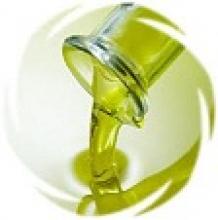
He gave some Prophetic Hadith on the benefits of using olive oil:
“The Messenger (Sallallaahu alayhi Wasallam) said: "Eat olive oil and anoint yourselves with it, for it is from a blessed tree." (Tirmidhi At'ima, 43)
And also:
"Eat olive oil with your bread, and oil yourselves with it, for it is from a blessed tree." (Ibn Maja, At'ima, 34)
Olive and olive oil Facts
Olives are the fruits that grow on the olive tree, which comes from the Oleaceae family. They contain a single pit and their flesh is filled with oil. The ripe fruits are pressed to extract the oil.
Green and black olives are essentially the same olive and only vary in the degree of ripeness- black being the most ripe.
Olive oil consists of 75% heart-healthy monounsaturated fat and only 13% saturated fat. It contains active compounds such as oleocanthal, which has a strong anti-inflammatory action to fight heart-disease and cancer. It also contains the natural antioxidants polyphenols, whose beneficial effects include lowering cholesterol, blood pressure and the risk of coronary heart disease. Many other nut and seed oils have no polyphenols whatsoever.
Health Benefits
Cancer Prevention
Evidence suggests that olive and olive oil consumption as part of a healthy Mediterranean diet has cancer-protective properties. Research also found that active ingredients in olive oil prevented human colon cancer cells from multiplying.
High Blood Pressure
A study published in 2007 in the Journal of Nutrition found that introducing moderate consumption of olive oil in the diet reduced systolic blood pressure.
Olive oil Facts
For the highest antioxidant content, choose extra-virgin or virgin olive oil- these are the least processed forms.
Extra-virgin comes from the first pressing of the olives and has a superior taste.
Virgin olive oil is obtained by pressing the crushed fruit in bags and removing the oil. It has a geeenish tint and has a stronger taste than virgin olive oil.
Olive oils with labels such as 'refined oil' 'pomace olive oil' or 'light oil' should be avoided as they are not always 100% olive oil. Pomace is the ground flesh and pits after pressing.
Use olive oil for low-temperature cooking. The particles in the oil will burn at higher temperatures, thus burning off the many health benefits.
Store your olive oil away from heat and light to maintain phytochemical content.
Olive Oil Is Effective Against A Form of Breast Cancer
A new study shows that olive oil is effective against HER-2 positive breast cancer, a form of breast cancer for which the medical establishment offers little in the way of tolerable treatment.
Olive oil has long been known to have many health benefits. The great scholar Ibn al-Qayyim in his Prophetic Medicine promoted some of its benefits, and more recently many studies have shown its benefits for fighting cancer, heart disease, and an olive oil-rich diet has been linked to long, healthy and happy lives.
This new study in the BMC cancer journal found that the polyphenols from extra virgin olive oil inhibit HER-2 (Human Epidermal growth factor Receptor 2) activity.
Researchers investigated the effects of this growth factor with extracts from commercial extra virgin olive oil in cultured human breast cancer cell lines. They tested for the ability to kill both HER-2 positive and negative tumors.
The lead researcher, Javier Menendez said, "Our findings reveal for the first time that all the major complex phenols present in extra-virgin olive oil drastically suppress overexpression of the cancer gene HER2 in human breast cancer cells".
They found that the main extra virgin olive oil polyphenols had strong tumor killing effects by selectively triggering high levels of apoptotic cell death (programmed cell death). The study concluded that extra virgin olive oil is an excellent and safe treatment targeting HER-2.
Types of Olive Oil
All types of olive oil are sources of monounsaturated fat, but extra virgin olive oil, the oil that comes from the first pressing of the olives, contains higher levels of antioxidants, particularly polyphenols and Vitamin E, because it is less processed.
Olive oil is generally extracted from olives by pressing or crushing them. It is available in different varieties depending on the amount of pressing. These include:
Extra virgin oil - this is considered to be the best variety. It is extracted without the use of heat, and is considered a cold-pressed oil. There is no heat or chemicals involved in its processing, so the flavor and nutrients remain intact.
Virgin oil - this is from the second pressing. The nutrients and the flavor are less concentrated, and are not what they were the first time around.
Pure - this oil has undergone some processing and heat during filtering and refining. A little extra virgin olive oil is added to this refined oil, and creates what is considered a lower grade of oil that is frequently sold under the simple term olive oil.
Extra light - oil has undergone considerable processing and has a very mild flavor. In this processing many nutrients are compromised. This type of oil is unregulated by any certification organization and there is no precedent as to what its content should be. Sometimes other vegetable oils have been added to it.
Source: Healthy Muslim
